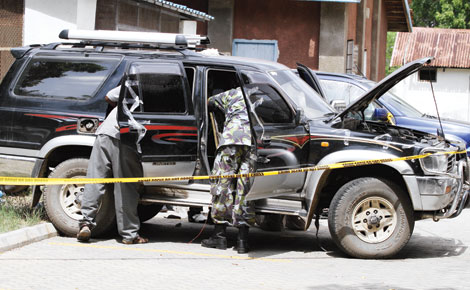×
The Standard e-Paper
Stay Informed, Even Offline
 |
| Car found with explosives in Mombasa PHOTO: COURTESY |
By PATRICK MATHANGANI and CYRUS OMBATI
Kenya: Kenya is faltering in the war against crime and terror amid a rising threat amplifi ed by the discovery of powerful bombs at the Coast this week, The Standard on Saturday can report.